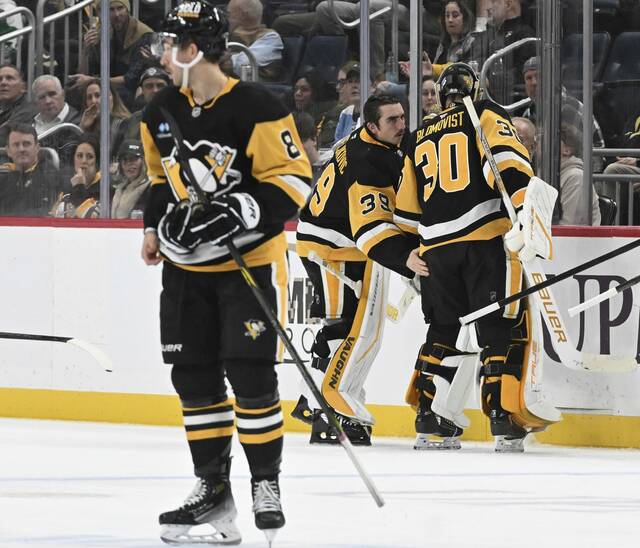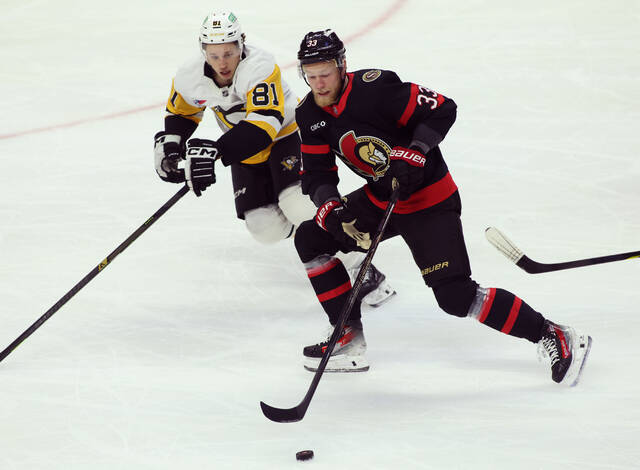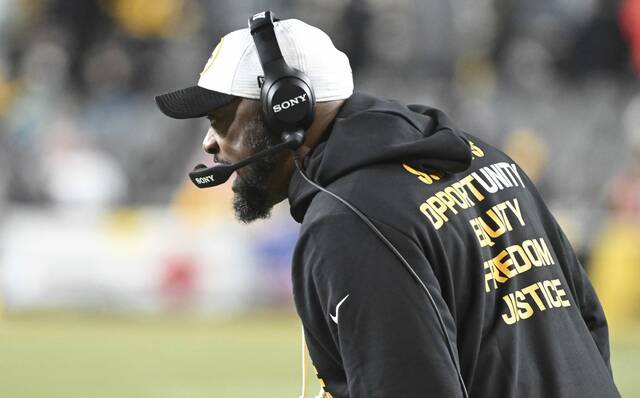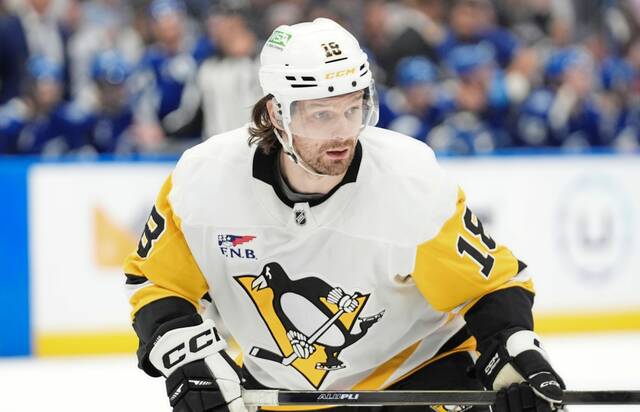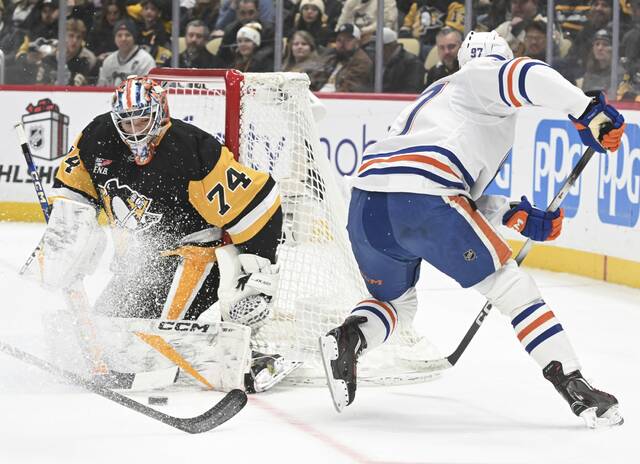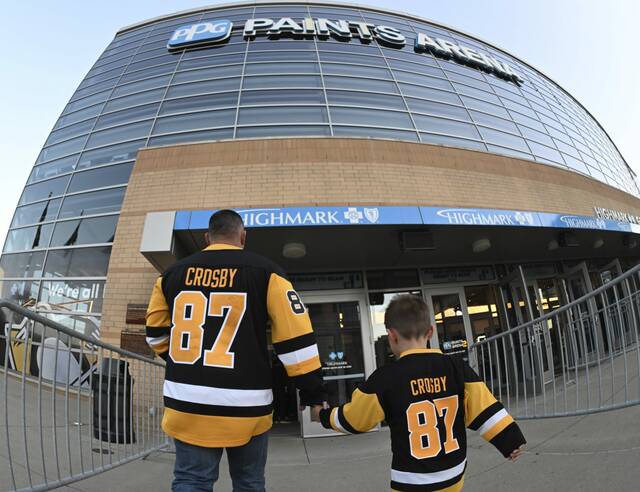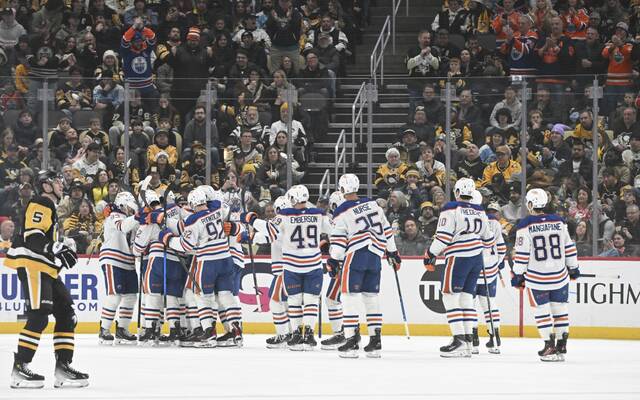No Pittsburgh Penguins player escaped the dark cloud that lingered over the club after Monday night’s humiliating 7-1 home loss to the Dallas Stars.
Prominent among those conducting some soul-searching in the aftermath of the defeat was rookie goaltender Joel Blomqvist, who allowed three first-period goals on eight shots before being yanked about 10 minutes into the game.
“Obviously, the first couple goals, I’m sure if you asked Joel, he would have liked to have had them back,” coach Mike Sullivan said after Dallas built a 2-0 lead with 12:47 remaining before the first intermission.
When the Stars went up 3-0 three minutes later, Sullivan opted to turn to Alex Nedeljkovic, who allowed three more goals in the opening period but went on to make 27 of 28 shots over the final 40 minutes.
Monday marked the first time in Blomqvist’s young NHL career that he’d been pulled from a game.
“It wasn’t a very good performance by me,” he said Tuesday after practice in Cranberry. “I think I might have tried a little bit too hard, so I got away from my own game there. I just need to learn from that experience. … I think the whole game, I didn’t play my own game there. That was the mistake by me to try too hard, I think.”
On the year, the 22-year-old Blomqvist is 3-5 with a 3.60 goals-against average and a team-best .904 save percentage.
Varying results on power play
The Penguins went on the power play once during Monday’s loss, but it was Dallas that seemed to benefit most.
During their lone man-advantage, the Penguins recorded zero shots on goal, compared to the Stars’ three.
A particularly brutal sequence less than a minute into the power play nearly put Dallas up 7-0.
After the Penguins lost a puck battle along the offensive-zone boards, Roope Hintz found himself alone with the puck for a prime breakaway chance.
Nedeljkovic denied the attempt, but Hintz collected his own rebound, quickly feeding the puck to Thomas Harley, who ripped a wrister from the slot that Nedeljkovic also fended off.
Just like Hintz, Harley promptly found the puck after his shot on goal and managed to get another one off, this time high and wide.
Less than 10 seconds later, a Sidney Crosby turnover led to another good short-handed look for the Stars, with Nedeljkovic again making a save, this time against Miro Heiskanen.
“As far as the way (the power play) went last night, I think it was a microcosm of the game and the mindset the group was in,” Sullivan said. “The structure that we need to rely on, I think we abandoned that structure. And when you do that, you’re not in position to have options with the puck, but also, you’re not in position to defend if the puck gets turned over if something happens.
“On the second entry there, we were disjointed and so as a result, we put ourselves in a difficult spot and they got a couple of Grade-A looks because of it.”
The Penguins power play, now led by first-year assistant David Quinn, ranks 18th in the NHL with a 19.2% conversion rate.
Last season, it finished 30th (15.3%).
Power-play success so far this year has been varied.
Of late, the Penguins ride a season-long three-game streak without a power-play goal. Dating to Oct. 25, over the last nine games, it has gone 3 of 22 (13.6%).
“It’s just like the rest of the team,” said forward Bryan Rust. “A little up and a little down. We’re working. We’re trying to talk through some things. Obviously, get some opportunities to work on it when we can. Just like everything else, we’re trying to get it going in the right direction far more often than it is right now.”
However, over the first eight games of the year, the power play was converting at a healthier 24% clip (6 of 25).
“I think the power play’s had its moments,” Sullivan said. “There’s been times where it’s looked really good. There’s been times where it’s looked disconnected.”


